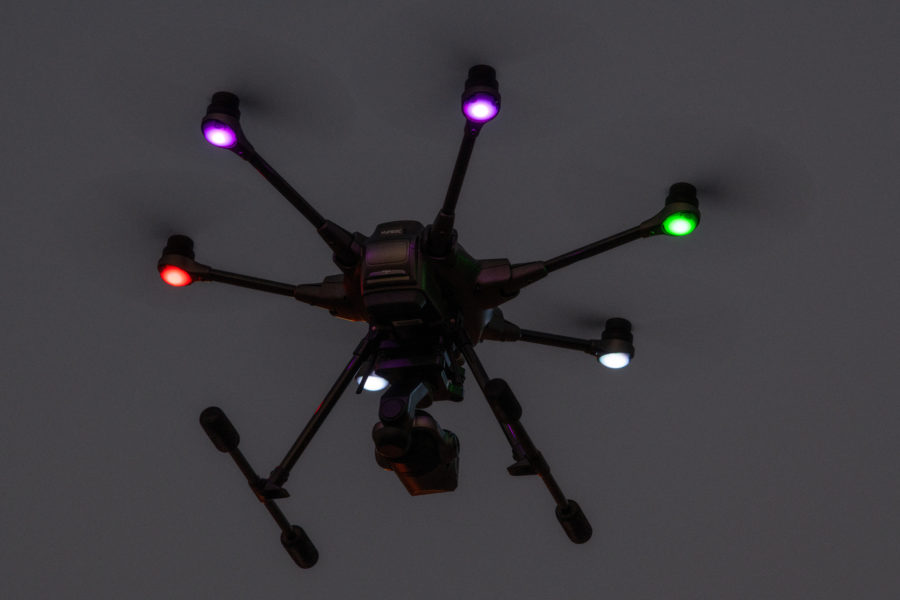The Air Force’s key operating base in the Middle East has adopted a new counter-drone system, first deployed to the nation’s nuclear bases to protect them from the growing threat of unmanned aerial systems.
Al-Udeid Air Base, Qatar, recently deployed the counter-small unmanned aerial systems tool to protect the sprawling base, which is home of the nerve center of Middle East air operations, mobility and refueling, and strike aircraft including B-52s. The new system lets its operators identify incoming threats and sever the connection between drone and operator, according to an Air Forces Central Command release.
“The goal of the program is to build counter measures for Al-Udeid AB that would pose as a last line of defense against all small UAS threats,” said Staff Sgt. Ryan Walters, the 379th Expeditionary Security Forces Squadron’s noncommissioned officer in charge of the C-UAS program.
Air Force Global Strike Command and U.S. Strategic Command first deployed the system to an undisclosed number of sites in 2019. The service said at the time that the systems use command and control, detection, and jamming to counter drones.
At Al-Udeid, operators take a 40-hour course, which includes hands-on work, before they can operate the systems. The system is “tailored” to threats specific to the region, which has seen UAS attacks on U.S. military sites in Iraq and oil facilities in Saudi Arabia.
“We are able to showcase our defensive capabilities and tailor the C-UAS briefings with a historical background to threats in the region,” said Maj. Shawna Rogers, 379th Air Expeditionary Wing senior intelligence officer, in a release.
U.S. Central Command boss USMC Gen. Kenneth F. McKenzie Jr. told lawmakers last month that drones represent the most “persistent and dangerous” threat to troops and that countering them is a top priority.
“These small- and medium-sized UAS proliferating across the [area of operations] present a new and complex threat to our forces and those of our partners and allies,” McKenzie said. “For the first time since the Korean War, we are operating without complete air superiority.”


